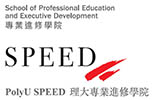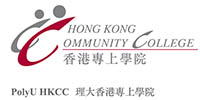雙語社評齊齊聽
[英語 (足本收聽)] Presented by Dr CHAN, Weng-kit Danny, Lecturer of Hong Kong Community College, The Hong Kong Polytechnic University
[普通話 (足本收聽)] Presented by Dr MAO, Sheng Michelle, Lecturer of Hong Kong Community College, The Hong Kong Polytechnic University
With less than two months to go before a new government is sworn in on 1 July, John Lee, the Chief Executive (CE)-elect, has described the formation of his governance team as an ''urgent'' task.
After John Lee was elected as CE, he met with the incumbent CE, the legislature, the judiciary and the central government agencies in Hong Kong yesterday (9 May). John Lee described it as a courtesy visit, but when he met with Carrie Lam and Legislative Council President Andrew Leung, he also talked about government transition, especially the reorganisation of the government structure. The incumbent government has proposed to change its current structure, namely 3 departments and 13 bureaux, into 3 departments and 15 bureaux. John Lee agrees with the general direction of the restructuring, but some details still need to be determined. The new government will take office on 1 July, which is only about 50 days from now. Time is tight for building a governance team. The reorganisation of the government structure is related to the selection of personnel. If the plan can be finalised and submitted to the Legislative Council for its approval as soon as possible, it can ensure a smooth handover and help the next government make its first move and deal with issues such as the fight against COVID, society's return to normal, the reopening of borders with mainland China, administrative reform and land and housing as soon as possible.
The most urgent task facing John Lee after his election is the building of his governance team. Over the past few days, there have been all kinds of talk in political circles about the possible candidates for the new governance team. The question of how many members of the incumbent government will stay on has also attracted much attention. Rumours abound about different camps recommending candidates to John Lee are spreading like wildfire, and many ''potential candidates'' have declined to comment on their odds of being in the next government. Meanwhile, John Lee has said that he feels that many people are willing to join the government. During his election campaign, John Lee repeatedly emphasised that the government works together as a team and does not rely on the CE only, adding that the most important thing is to cast the net wide to line up able people from various parties and put them in suitable positions that will bring out their strengths. It is believed that the governance style of the next government will be different from the incumbent government. The CE will be less hands-on and will emphasise more on collective decision-making. The knowledge, ability and quality of the members of the governance team will have a significant impact on the government's governance performance.
In the past, CEs faced many obstacles when building their governance teams, and the ''hot kitchen'' problem was only one of them. Considerations such as political rewards and balance of power were also unfavourable factors for the building of strong and united governance teams. Looking back at the past SAR governments, nearly every administration was linked with rumours of internal discord. From time to time, there were rumours in political circles that the CE was unable to use his or her ideal candidate and was forced to work with those with divergent views — or forced to appoint some mediocre people — in exchange for the support of certain parties in the Legislative Council.
With Hong Kong in a new situation, the executive and legislature are no longer confrontational, and the legislature is no longer ''idling''. John Lee emphasises the enhancement of the government's executive capabilities in his platform. After the power structure is set up and the administrative efficiency is improved, whether the government can deliver will depend on the people it uses. During government transition, no doubt different political powers and vested interests will want to vie for a place in the government. But the reform of the electoral system has strengthened the executive-led structure of the SAR government, meaning that it is even more necessary for the government to line up people based on merit rather than engage in pork-barrel appointment of people.
組班重識見能力 用人唯才接地氣
距離7月1日政府換屆不足兩個月,行政長官當選人李家超形容組班「急不容緩」。
李家超當選特首,昨天分別與現任特首、立法、司法及中央駐港機關人員會晤。李家超形容是禮節拜訪,不過他跟林鄭月娥及立法會主席梁君彥會晤,亦有談及政府換屆交接工作,特別是重組政府架構一事。現屆政府提出將目前的3司13局,改為3司15局,李家超認同改組總體方向,但部分細節仍然待定。新政府7.1上任,現時只餘大約50天,組班時間緊迫。政府架構重組,事關人選物色,方案早日拍板交付立法會通過,確保交接工作順利,有利下屆政府開局,盡快着手處理抗疫、復常、通關、行政改革及土地房屋等問題。
李家超當選後最迫切的工作是組班。連日來,政界對於新班子可能人選,說法林林總總,現屆政府多少人可以留下備受關注;不同陣營紛紛向李家超推薦人選的消息,更是甚囂塵上,多名「潛在人選」面對外界追問入局機會,皆不置可否。李家超則稱,感覺很多人願意加入政府。競選期間,李家超一再強調,政府施政群策群力,並非單靠特首一人,最重要是廣納各方人才,各司其職各展所長。下屆政府管治風格,相信將與現屆政府有別,特首較少事事躬親、較多強調集體決策,管治團隊各成員的識見、能力與質素水平,對政府施政表現將有重大影響。
過往特首組班掣肘障礙多,「熱廚房」問題只是其中之一。政治酬庸、勢力平衡等考慮,對於組織一支強而有力、同心同德的管治團隊,同樣是不利因素。回看歷屆特區政府,差不多每屆都有內部不和傳聞。政圈不時流傳,特首組班未能起用心目中理想人選,要跟理念迥異的人勉強合作,又或被迫任用一些平庸之輩,換取一些政黨在議會的支持。
新形勢下的香港,行政立法不再對立,議會不再空轉。李家超政綱強調提升政府執行力,權力架構搭好了,行政效率改善了,能否幹成事,就要看用人。政府換屆,不同政治力量和既得利益當然想「爭位」,然而選舉制度修改後,特區行政主導得到強化,政府更要用人唯才、不搞政治酬庸。
明報社評2022.5.10







